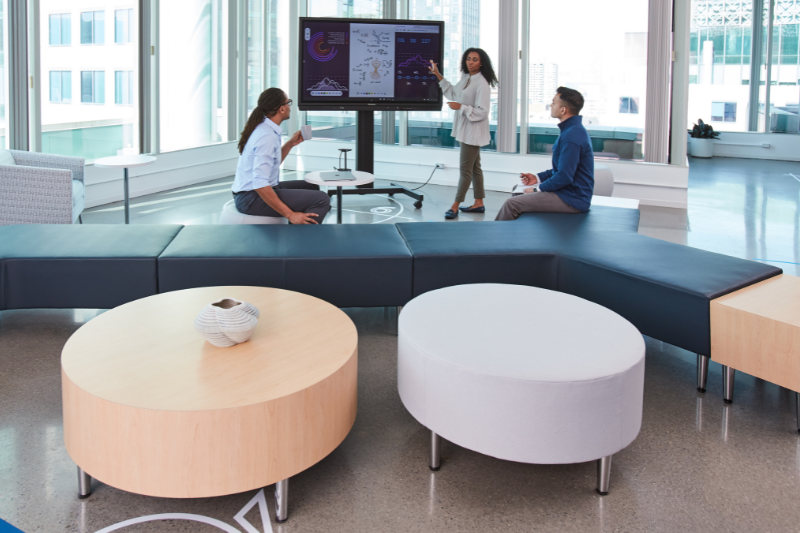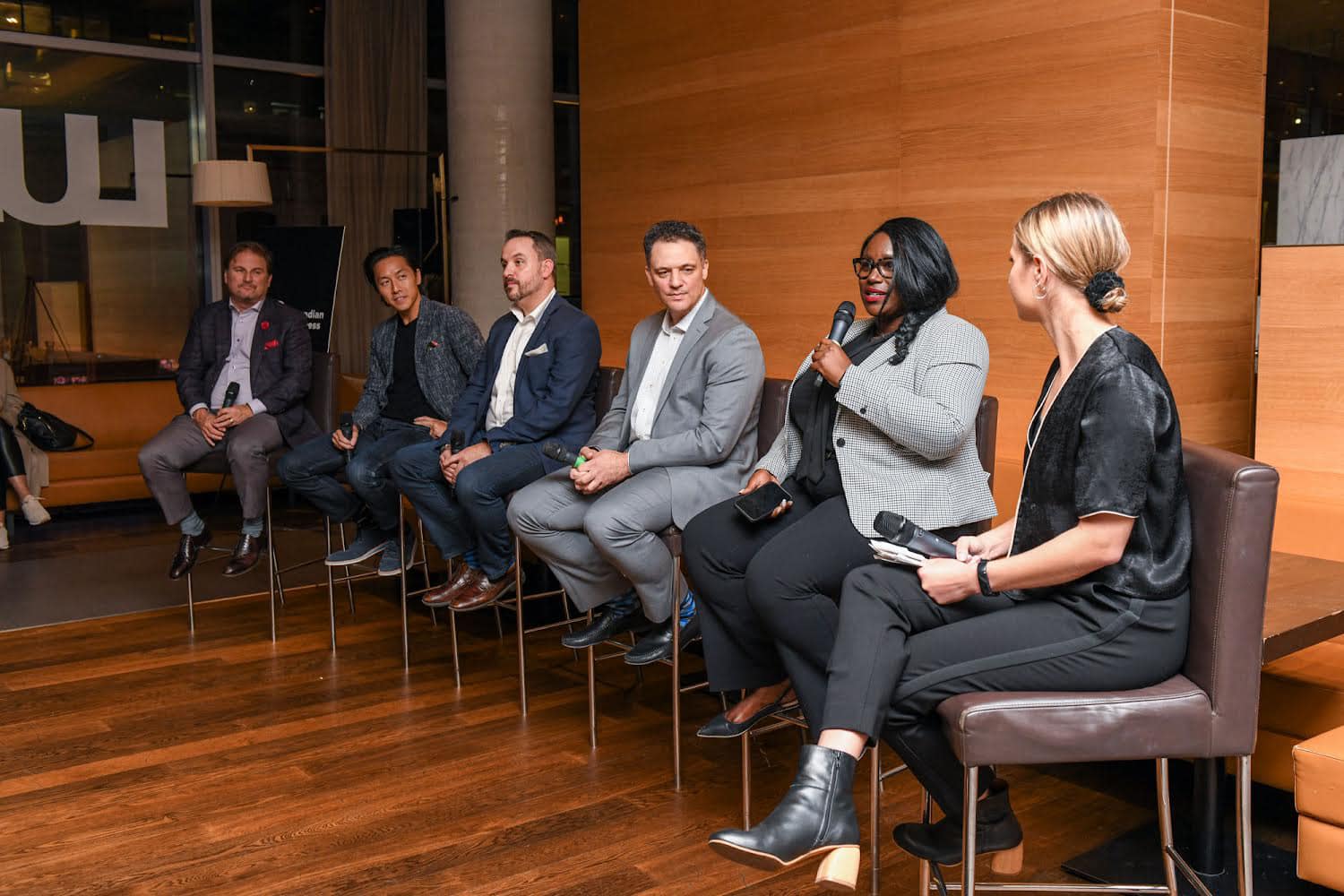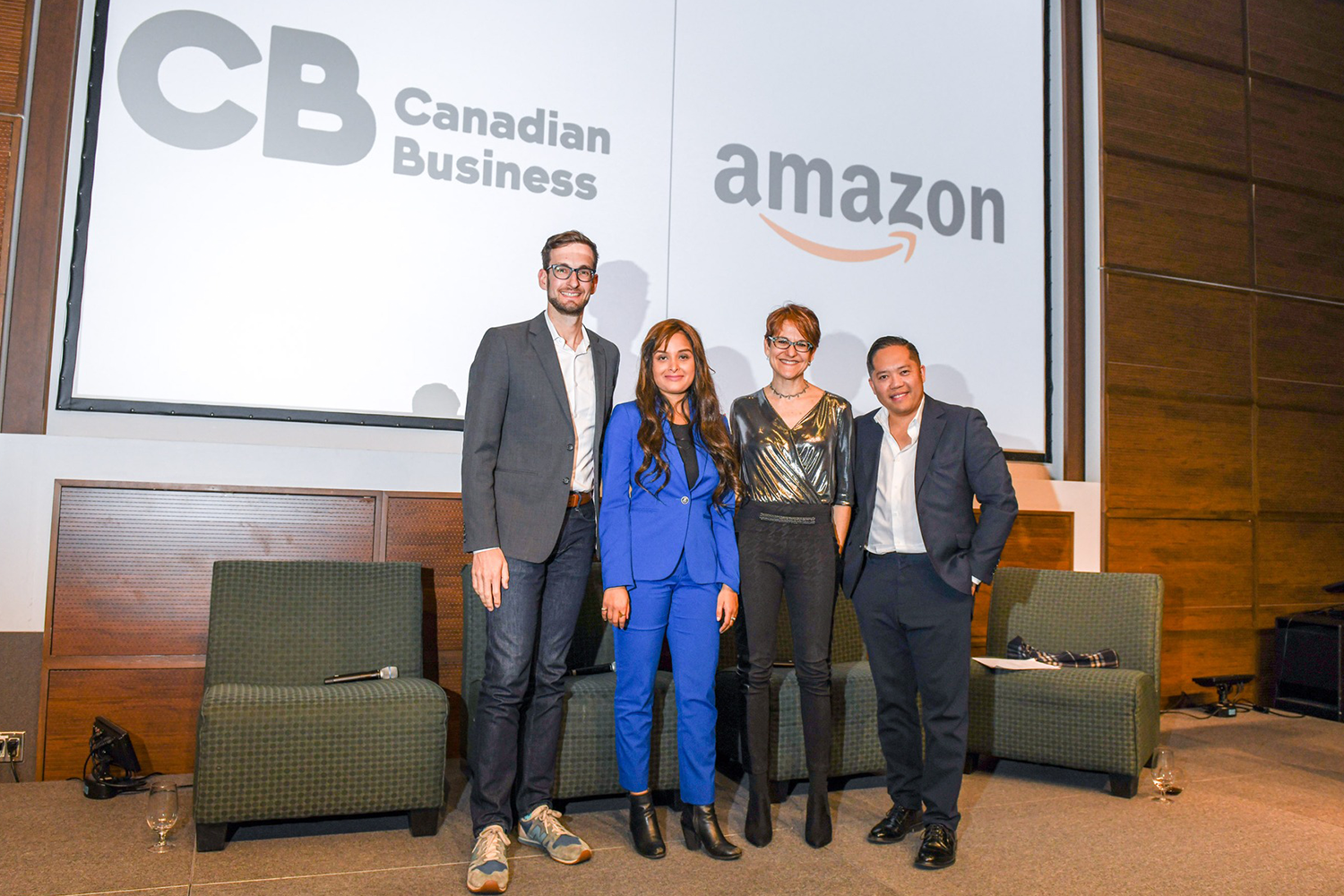We All Want to Work Remotely, but It’s Making Us Lonely

According to a recent poll by Colliers Canada, nearly two-thirds of workers are hybrid, meaning they’re in the office a few days a week and remote for the rest. What started as a pandemic stopgap has turned into a once-in-a-century shift in how we work.
And yet the evidence, so far, seems to suggest it’s not all uncomplicated bliss and homemade lattes. When it comes to employee well-being, in particular, the results are mixed: A Microsoft Future of Work survey found that while remote work can boost job satisfaction, it can also make employees feel socially isolated, guilty and trying to overcompensate for those feelings through their work. A 2021 survey of U.S. and U.K. employees by workplace software company Kadence found that nearly 7 in 10 young workers say WFH makes it harder to maintain relationships with colleagues.
That old chestnut, “we’ve never been so connected yet so disconnected,” feels apt. You don’t want to go back to the office full-time—and maybe it never was a place of meaningful connection for you anyway—but, like one in 10 Canadians told StatsCan in 2021, you’re often or always lonely.
That’s where Kim Samuel comes in. The Toronto-based activist, academic and founder of the research and advocacy hub, Samuel Center for Social Connectedness, has been studying loneliness and human connection for decades. Samuel’s latest book, On Belonging: Finding Connection In An Age of Isolation, hints at some novel solutions for the plague of loneliness afflicting remote and hybrid workers.
In the book, Samuel delves into the growing phenomenon of social isolation. (She notes that the word “loneliness” was only coined around 1800, a reflection of the way that growing industrialization and consumerism were already shifting Western societies towards an individualistic, rather than collective, way of life.) The statistics she cites are eye-opening: the current Canadian loneliness rate hovers around 20 per cent and the health effects of loneliness are equivalent to smoking 15 cigarettes a day. While social isolation has always been part of society, Samuel writes that, “today, the way we work and socialize tend to distance us from one another and our communities.”
CB spoke with Samuel about how remote work affects human connection and ways employees can combat loneliness and live more connected lives.
As someone who studies connectedness, what are your thoughts on remote work? Does it raise any red flags for you?
I embrace choice and people’s agency. Those are critical, because you can feel isolated when you don’t have choice and agency. Working from home can have great perks, like walking your dog at lunch, but it can be socially isolating and have an impact on mental health.
In 2015, researchers from the Oregon Health and Science University found that people who only had face-to-face social contact every few months or less had nearly double the risk of depression when compared to people who meet with friends at least three times a week. Research published in the Harvard Business Review found that a third of workers report a loss in the sense of community since the start of the pandemic.
So when it comes to remote work, the answer isn’t clear cut. The advantages of remote work, including the elimination of commuter time and new opportunities for self-care and childcare, can substantially boost well-being. Remote work can be both a challenge and a benefit in terms of belonging, but I still come back to choice and agency, and meeting people where they are—nothing builds belonging like that.
In your book, you talk about how we can “design for connection.” What does that look like in a workplace, might that be remote or hybrid?

Employees need to have time for face-to-face connection. Employers need to design what the office space looks like and consider: Is there light? Is there colour? Are there spaces where people can have coffee and socialize?
In a remote-work context, employers can also design for belonging by putting emphasis on employees’ power and purpose by creating opportunities for workers to share honest and authentic feedback without negative repercussions. They can ask employees for feedback on projects, or for their opinions on how the organization can support making positive change in the community and the broader world.
Is it possible that remote or hybrid work can create time for finding greater connectedness elsewhere in your life?
I hope so. I have heard about people who are making time for other things, like hobbies or self-care. It comes back to what we value and how we spend our work days. Instead of employers expecting workers to be glued to their desk from 9 to 5, remote and hybrid work can allow people to get their work done on their own time, and not have to ask permission if their child has a special event at school during lunch hour.
Even from the standpoint of productivity, it’s a value employers should prioritize. The global coaching firm BetterUp surveyed nearly 2,000 workers across industries, and ran several experiments across several hundred participants to observe and quantify the cost of social exclusion. It was extraordinary. The highest sense of belonging was linked to a 56 per cent increase in job performance, a 50 per cent decrease in turnover risk and a 75 per cent decline in sick days. Even if the workplace can’t be the ultimate source of personal fulfillment—which I don’t think it should be anyway—it’s nevertheless one of the primary places people spend their waking hours. For this reason, workplaces can—and should—be contexts that foster belonging.
What advice would you give to remote or hybrid workers who feel lonely?
The first step to overcoming isolation is to recognize the importance of connectedness, and think systematically about how you can advocate to your employer and pursue it personally. Belonging isn’t only about connecting to people. A remote worker might build more belonging through a sense of shared ownership. This can mean asking to get involved in decision-making in the workplace, or some other entity in your community that’s bigger than yourself. See if you can get involved in one of your company’s advisory committees, or a local group that meets once a month. I call this “exercising your power.”
If your job isn’t providing professional meaning or purpose, ask yourself what it would take to switch companies, or even careers. I know that’s not easy. We know many people face big financial or logistical hurdles to making such a change, but I think it’s really important to think critically about what you can do to cultivate belonging for your well-being in life.










